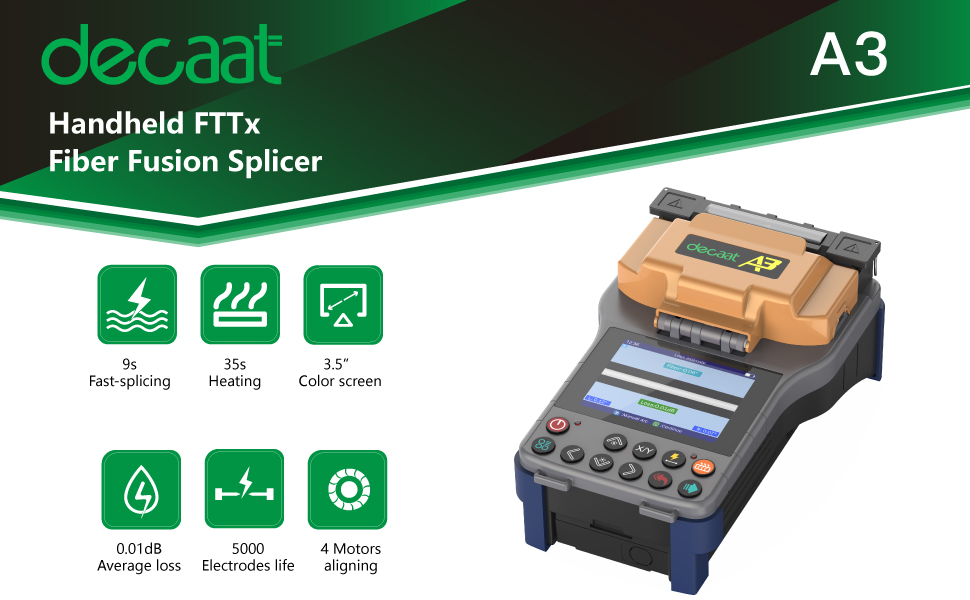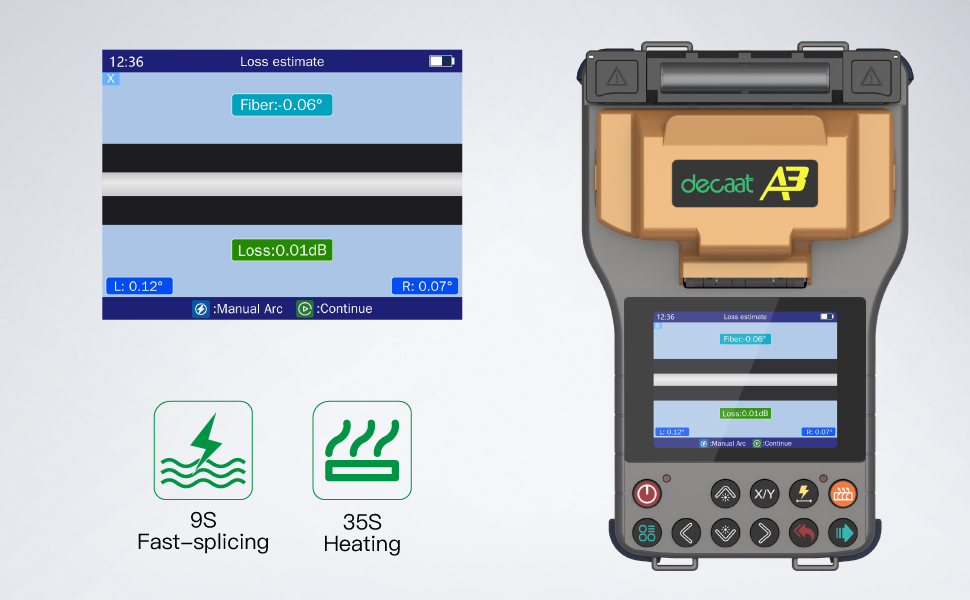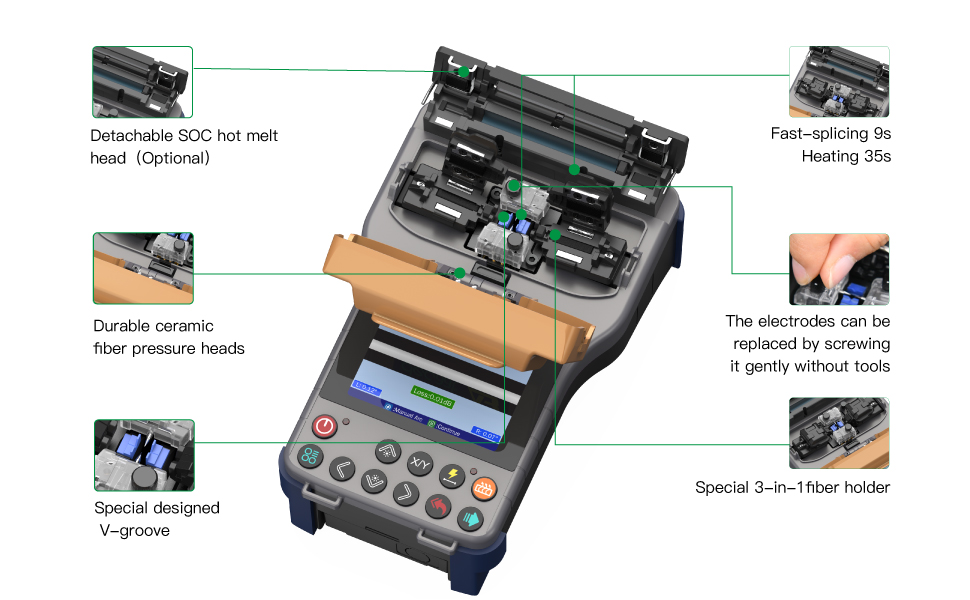14 Common Problems and Solutions When Using Fiber Fusion Splicers
- Addtime: 2024-04-03 / View: 286
1. Welding loss is too large
The cause of this failure can be analyzed from the following points:
(1) The end face of the fiber is not clean and dusty, or there is debris on the V-shaped groove, or there is debris on the fiber holder.
(2) The Angle difference of cutting end face of fiber is too big.
(3) Problems with the optical system, the objective lens problem leads to estimation errors.
(4) Welding strength is not enough or too strong, discharge position deviation.
(5) Fusion splicer program error.

2. The fusion splicers cannot be welded normally, indicating that the fusion fails and a red alarm appears.
The cause of the fault can be analyzed from the following points:
(1) Splicing loss is too large, or fiber to fiber fails, or fiber propulsion fails.
(2) The end face of the fiber is not flat or has debris.
(3) Optical system problem.
(4) There is a problem with the fusion splicer program.
3. The fusion splicer prompts that the fiber cannot be found
The cause of the fault can be analyzed from the following points:Optical system problem.
4. The fusion splicer prompts the left or the right fiber can’t be found.
The cause of the fault can be analyzed from the following points:
(1) The left fiber (right fiber) is not placed correctly, or the V-groove has debris.
(2) Motor propulsion system malfunction.
(3) Optical system related component failures, including objective lenses and mirrors and related control circuits.
5. The fusion splicer indicates that the discharge intensity is not enough
The cause of the fault can be analyzed from the following points:
(1) Electrode discharge intensity coefficient is too low.
(2) The electrode discharged too many times and the surface was oxidized.
(3) Unqualified electrode installation and poor contact.
6. Optical fiber propulsion failure
he cause of the fault can be analyzed from the following points:
(1) The motor fault.
(2) V-groove is blocked or cannot clamp fiber.
7. The fusion splicer indicates that the left or right of the optical fiber is dirty or the end surface is not flat, they cannot be welded.
The cause of the fault can be analyzed from the following points:
(1) Indicate that the relevant parts have debris, or the end face of the fiber is not flat.
(2) Lens mirror surface has debris, so the analysis result will not be accurate.
8. The fusion splicer display cannot be displayed
The cause of the fault can be analyzed from the following points:
(1) Whether the display power supply and data cable are connected properly.
(2) Whether the motherboard information can be seen when booting, if not, the motherboard is faulty possibly.
(3) If you can see the motherboard information when booting, it is possible that the screen is damaged, or the optical system is failure.

9. The fusion splicer is unable to boot
The cause of the fault can be analyzed from the following points:
(1) Whether the power supply of the meter is normal.
(2) Whether the switch of the instrument normal.
(3) Can you see the motherboard information when booting? If it is impossible, the motherboard may be damaged.
(4) If you can see the motherboard information after booting, it will not respond, or it will be stuck. May be a program error or motherboard failure or screen corruption.
10. The fusion machine button does not respond
The cause of the fault can be analyzed from the following points:
(1) Related button failure.
(2) Illegal operation.
(3) The machine is too slow or crashed.
11. The fusion splicer cannot heat the heat shrink sleeves
The cause of the fault can be analyzed from the following points:
(1) What's the temperature of the heater? whether the heat is not enough? If the heat is enough, It could be a heat-shrinkable tube problem.
(2) If the heat is not enough, the heater may be damaged.
(3) Check the heater power supply is normal.

12. The power supply battery of the fusion splicer doesn't work
The cause of the fault can be analyzed from the following points:
(1) Battery core is damaged.
(2) Damaged battery charger or damaged charging circuit.
(3) Poor charging connection.
13. The fusion splicer is failed to self-check.
The cause of the fault can be analyzed from the following points:
(1) The self-tested parts is damaged, handle it according to the corresponding fault.
(2) Program error.
14. System halted during the fusion process
The cause of the fault can be analyzed from the following points:
(1) Program error.
(2) Poor contact of key components of the instrument, or unstable voltage.
(3) Motherboard failure.
-
Previous:
No Data
Next: How Does a Fiber Identifier Work?



